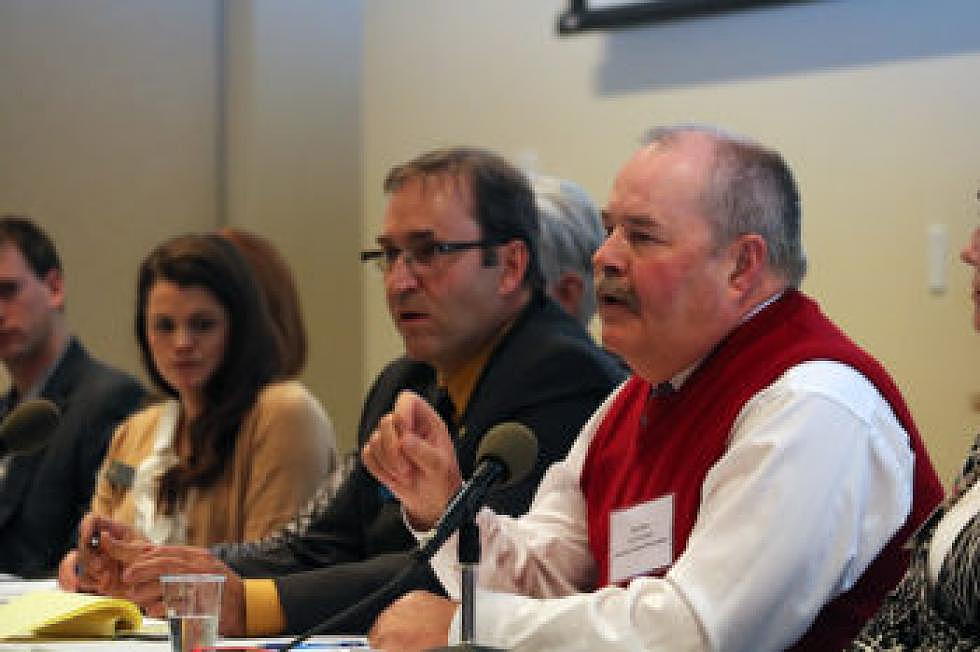
Montana hospitals express concern over ongoing health-care uncertainty
A spokesman for Sen. Steve Daines said the senator is holding firm to Republican Party efforts to repeal and replace the Affordable Care Act, a move that has raised concerns among state providers and Montana Hospital Association members who are looking for predictability in the system.
At the Critical Care Hospital Summit in Missoula last week, Brad Kehr, counsel to Daines, said the Montana Republican believes that Obamacare was drafted as a fundamentally flawed law and premiums have skyrocketed as a result.
“This year, we're talking about challenges with increases in premiums of a major carrier in Montana of 23 percent,” Kehr said. “One of the challenges we also face is that 23 percent isn't just coming off this year, it's coming off an increase of 133 percent over the last five years.”
Kehr, who specializes in health care and judicial issues, said Daines believes the increase in premiums is hurting Montana farmers and ranchers and the state's small businesses. Opponents of repeal and replace believe the GOP is intentionally undermining the system, which has caused the recent increase in premiums.
While GOP efforts to repeal and replace the nation's prevailing health care law have stalled, Kehr said, the conversation in Congress will return to health care again next year.
“The interesting thing too is that Obamacare instituted what we've come to call a poverty tax,” said Kehr. “Eighty percent of the individuals in Montana who are paying the penalty on the individual mandate are actually making less than $50,000 a year, and 50 percent of them are making less than $25,000 a year. This consequence on the poor is not what Obamacare was designed to do, but it's what the law is doing.”
Congress is currently faced with two opposing bills to address health care, including one crafted by Sen. Lamar Alexander, R-Tenn., and Sen. Patty Murray, D-Washington. The so-called Alexander-Murray bill would work to stabilize Obamacare by guaranteeing the payment of critical subsidies for two years.
But President Donald Trump has criticized the bipartisan plan, as has the conservative wing of the GOP. Daines opposes the proposal as well but supports a more conservative plan crafted by Republicans Sen. Orrin Hatch of Utah and Rep. Kevin Brady of Texas.
That proposal would fund subsidy payments while suspending the individual mandate. It would also waive the employer mandate for two years and introduce new abortion-related restrictions.
“Alexander-Murray has been presented, but it creates a difficult situation – it continues Obamacare,” said Kehr. “The Hatch-Brady proposal provides additional flexibility for states to actually create new plans.”
While the health-care debate continues to evolve in Washington, D.C., Robert Olsen, the senior vice president of the Montana Hospital Association, expressed concerns over the ongoing uncertainties in health care.
“You think things are changing quickly now, just give it a few years and watch how fast this environment destabilizes,” he said.
“When you look at the changes in Obamacare and the ACA, you see what I've now begun to call the mirage of health care. We're going to repeal a bill and replace it with something else. We know what repeal means – it's gone. We know also know what replace means – it's a mirage.”
Olsen said that so-called mirage comes in the GOP's promise of flexibility, though some hospital providers don't believe that can or will happen. Olsen said he's called on state legislators “to name one thing that's going to be flexible” if the GOP plan is put in place.
“When you look at the total of the law, the first thing it says is that we're going to cap Medicaid, we're going to constrain the growth of Medicaid and the federal government is going to take $500 billion in savings into its pocket right off the top,” said Olsen.
Olsen doesn't believe any flexibility will come from such cuts, and when added to those at the state level, the resulting impacts could become critical, resulting in a downward spiral of lost payments to critical access hospitals.
“If you respond by cutting your own costs, Medicare and Medicaid reduces your payments even further,” Olsen said. “You can't cut your way out of a reduction in government payments.”
Olsen believes the GOP's efforts to creative more flexibility could also hurt consumers.
“Consumers are being sold plans that don't cover what they think they're buying, and when they finally do need health care services, they find out they have the wrong plan,” he said.
“There's an awful lot of ambition to put the risk on you folks and on your facilities to bear the risk,” he added. “That's the risk of affordability, the risk of access, and the risk of making sure your consumers aren't poorly insured, underinsured and without access to the care they need.”
Robyn Madison, a spokesperson for Sen. Jon Tester, said the Montana Democrat is on a waiting list to sign on in support of the Alexander-Murray bill. She said Tester has also co-sponsored legislation to maintain access to care, lower costs and create predictability to help hospitals set their rates.
